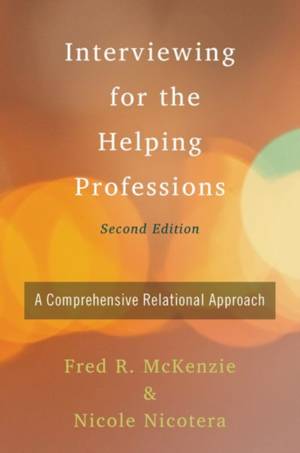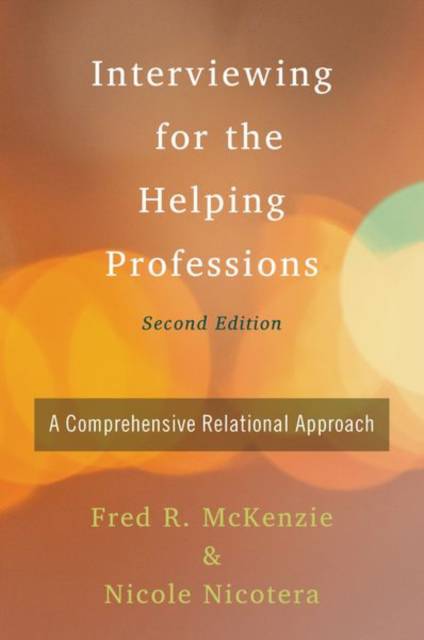
- Retrait gratuit dans votre magasin Club
- 7.000.000 titres dans notre catalogue
- Payer en toute sécurité
- Toujours un magasin près de chez vous
- Retrait gratuit dans votre magasin Club
- 7.000.000 titres dans notre catalogue
- Payer en toute sécurité
- Toujours un magasin près de chez vous
Interviewing for the Helping Professions
A Comprehensive Relational Approach
Fred McKenzie, Nicole Nicotera
Livre broché | Anglais
44,95 €
+ 89 points
Description
A successful professional interview depends on the development of a generally positive human interaction. Without a positive base, the interview can be fraught with difficulties and roadblocks. This is true regardless of the discipline, be it social work, psychology, human services, nursing, criminal justice, medicine, psychiatry, or any other field. Beginning interviewers may have learned solid technique, but often are initially focused more on thinking about what they will say next than on understanding or even listening to the client. As a result, that critical initial interview -- whose success affects the future of most professional encounters -- is often disrupted by a failure to truly listen and understand, which is the foundation for earning clients' trust. This second edition goes beyond most other clinical interviewing books in its emphasis on the emotional foundation of interviewing and its focus on the importance of social justice and attention to the problem of microaggressions that can prohibit building and maintaining therapeutic rapport with clients. Interviewing for the Helping Professions can help both the beginning professional and the veteran interviewer understand the nature and purpose, technique, meaning, emotions, and outcomes of the interviewing process. The book also provides a comprehensive overview of the theory and technique so crucial to meaningful interviewing. More important, it emphasizes the emotional significance of the interaction and grounds the interviewing process in contemporary theories of practice and social justice.
Spécifications
Parties prenantes
- Auteur(s) :
- Editeur:
Contenu
- Nombre de pages :
- 264
- Langue:
- Anglais
Caractéristiques
- EAN:
- 9780190876845
- Date de parution :
- 13-06-18
- Format:
- Livre broché
- Format numérique:
- Trade paperback (VS)
- Dimensions :
- 152 mm x 231 mm
- Poids :
- 376 g







